Food For People With Gall Bladder Stones
By Dr. V Devendran +2 more

Get,

to manage your symptom
Get your,


4 Cr+ families
benefitted

OTP sent to 9988776655



You’ve successfully subscribed to receive
doctor-approved tips on
Whatsapp

Get ready to feel your best.

Hi There,
Download the PharmEasy App now!!


Register to Avail the Offer
Send OTPBy continuing, you agree with our Privacy Policy and Terms and Conditions

Hi There,
Sign up on PharmEasy now!!
Trusted by 4 crore+ families

OTP sent to 9988776655



You have unlocked 25% off on medicines




Code: NU25
By Dr. V Devendran +2 more
Table of Contents
The gall bladder is an organ on the right side of the abdomen and is located below the liver. It stores the digestive juice (bile) secreted by your liver, which is then released into the small intestine to help break down fats. Cholelithiasis is the medical term for gallstones, which are solid deposits formed in the gall bladder. These occur in a range of sizes and can be single or multiple in number.
The symptoms of gall bladder stones may include abdominal pain, indigestion, back pain, fever, and vomiting1. In case you experience any of these symptoms for over a few hours or repeatedly, consult your doctor for diagnosis and treatment.
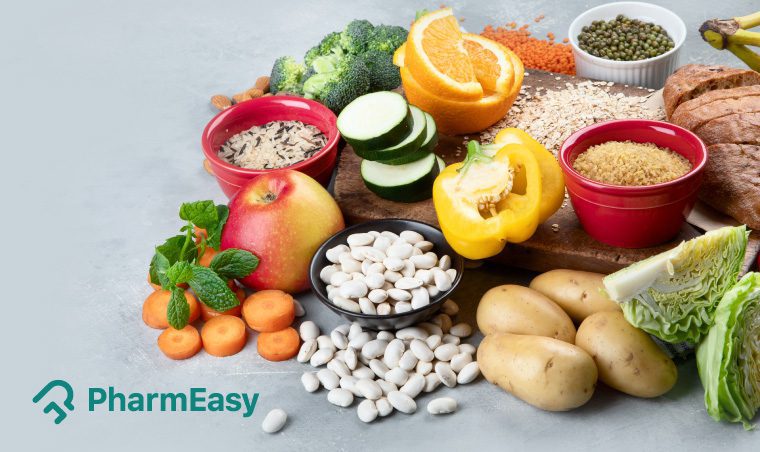
Remember, diet can play an important role in managing the symptoms of many conditions, including gall bladder stones. So, what should you eat and what foods should you avoid when you have gall bladder stones?
As a doctor, I advise individuals with gallstones to incorporate foods rich in vitamin B and iron into their diet. Some examples may include whole grains, dark leafy greens like spinach and kale, and sea vegetables. These nutrient-rich foods may provide essential vitamin B and iron, which are important for maintaining overall health.
Dr. Anuja Bodhare, B.A.M.S, M.D (Ayu)
A healthy diet may not help to fight all the symptoms of gall bladder stones or save you from surgery; however, it may help avoid worsening of the symptoms. This article aims to provide a guideline on what foods you should include in your diet to help reduce the stress on your gall bladder. We recommend consulting a doctor and a nutritionist for an appropriate meal plan.
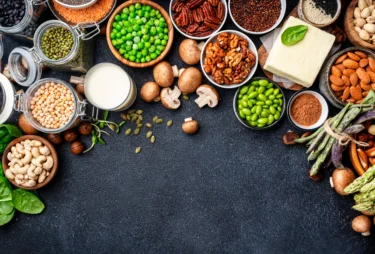
It is common knowledge that plant-based foods such as fruits and vegetables are rich in nutrients, which are essential for the body to stay healthy and functional. They also provide an ample amount of vitamins, minerals, and antioxidants. These antioxidants help remove toxins and free radicals produced by natural processes and processed food. A build-up of toxins can break down the body’s natural balance and cause cell damage. Plant-based foods offer the nutrition needed to get better and help reduce the stress on the digestive system2. Another advantage is that plant-based foods decrease the risk of cholesterol, which may help manage gallbladder stones associated with cholesterol.
As a piece of advice that I consistently offer to patients with gallstones, I recommend basing their meals on starchy carbohydrates such as bread, pasta, rice, and potatoes. By focusing on these wholesome carbohydrates, individuals with gallstones may create a nourishing and gallstone-friendly diet that promotes good health that contributes to a better you9!
Dr. Smita Barode, B.A.M.S, M.S.
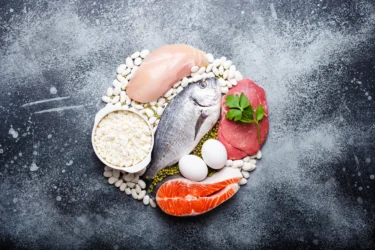
Including a source of protein that is low in saturated fat might help lower the levels of bad cholesterol in our bodies. Red meat, a good source of protein, is high in fat, which can put stress on the gall bladder. Thus, choosing lean protein sources might help you manage the symptoms of gall bladder stones. Some common options are:
You should avoid dairy products and also processed meats as they generally have higher salt content. According to a study published in the database of the National Institutes of Health, a higher intake of vegetable protein might help lower the risk of gall bladder conditions3.
Based on my personal experience, I have found a great way to add more fruits to a gallstone-friendly diet. I recommend including fruits like bananas, berries, or a handful of dried fruit in your breakfast cereal. By doing so, you may enjoy a delicious and nutritious start to your day while ensuring you incorporate the benefits of fruits into your diet.
Dr. Rajeev Singh, BAMS
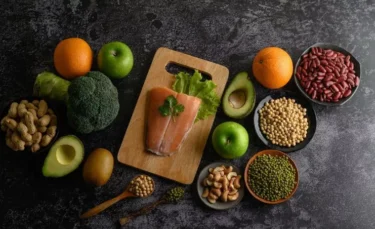
Fibre is essential for good digestive health and enhances the movement of food through our gut. Thus, fibre-rich foods help lower the production of secondary bile acids, which can help decrease the stress on the gall bladder. According to a study published in the National Library of Medicine, a high-fibre diet helped decrease the production of biliary sludge (thick bile that can form gallstones)4. An increase in the amount of this sludge means an increase in the risk of gall bladder diseases. Thus, people who follow a fibre-rich diet might be at a reduced risk of gallbladder stones. It also suggests that a fibre-rich diet might offer relief to people affected with gall bladder stones. Some sources of fibre are:-
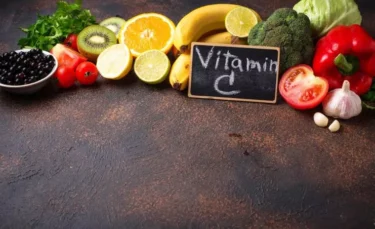
According to a hospital case study published by the National Library of Medicine, vitamin C, magnesium, and folate can help reduce the risk of gall bladder diseases and improve your gall bladder health5. Some sources high in vitamin C are:-
As part of a gallstone-friendly diet, I may suggest incorporating healthy fats such as fish oil. It may help support the regular contraction and emptying of the gallbladder8.
Dr. Siddharth Gupta, B.A.M.S, M.D (Ayu)
Now that we know about what foods we should include in our diet for a healthy gall bladder, let us look at foods we should avoid.
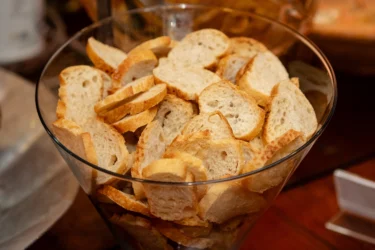
Unrefined carbohydrates are considered to be healthy and some sources, like whole grains and cereals, can provide essential nutrients. However, refined carbohydrates are more difficult to digest and may increase the risk of gall bladder diseases6. Some carbohydrates that you need to steer clear of are:-
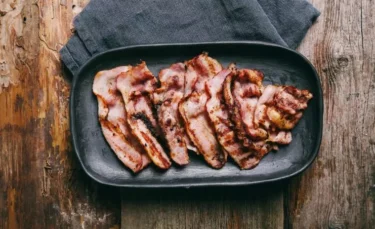
The bile produced in the gall bladder helps dissolve fats. However, it is difficult to break down saturated and trans fats, which may add to the stress on the gall bladder2. Some major sources of unhealthy fats are:-
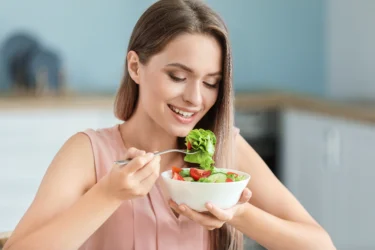
Despite taking precautions, in some cases, the gallbladder may still need to be removed. Removal of the gall bladder does not have any serious adverse effects on the body’s digestive system. However, other body systems will take time to adjust, during which the individual must make certain dietary changes to accommodate the body’s condition. Some common tips include:-
Always be sure to consult your doctor if you have nausea and pain.
Also Read: Top Non Dairy Calcium Rich Foods to Add to Your Daily Diet
The management of gall bladder stones primarily depends on adopting a balanced, plant-based diet with lean proteins, fibre-rich foods, and adequate vitamin C. Removing refined carbohydrates and unhealthy fats from your diet may help you avoid further stone formation. After gall bladder removal, eating smaller, lighter meals and allowing your digestive system time to adjust may help support faster recovery and long-term digestive health.
It is important to adopt a diet that puts less stress on the digestive system and is rich in fibre to help promote digestion. Refer to the article for detailed guidelines.
Avoid oily and deep-fried foods. Anything that triggers indigestion or bloating must be avoided.
Some common drinks that you can safely consume while you have gallstones are apple cider vinegar, apple juice, peppermint tea, turmeric tea, buttermilk and water. You should avoid drinks like caffeine that can further upset your digestive system.
The best way to get rid of pain due to gallbladder stones is by the surgical removal of the gallbladder. Other ways can be the medicines advised by your doctor.
Disclaimer: The information provided here is for educational/awareness purposes only and is not intended to be a substitute for medical treatment by a healthcare professional and should not be relied upon to diagnose or treat any medical condition. The reader should consult a registered medical practitioner to determine the appropriateness of the information and before consuming any medication. PharmEasy does not provide any guarantee or warranty (express or implied) regarding the accuracy, adequacy, completeness, legality, reliability or usefulness of the information; and disclaims any liability arising thereof.
Links and product recommendations in the information provided here are advertisements of third-party products available on the website. PharmEasy does not make any representation on the accuracy or suitability of such products/services. Advertisements do not influence the editorial decisions or content. The information in this blog is subject to change without notice. The authors and administrators reserve the right to modify, add, or remove content without notification. It is your responsibility to review this disclaimer regularly for any changes.
Comments

Leave your comment...
You may also like
Comments